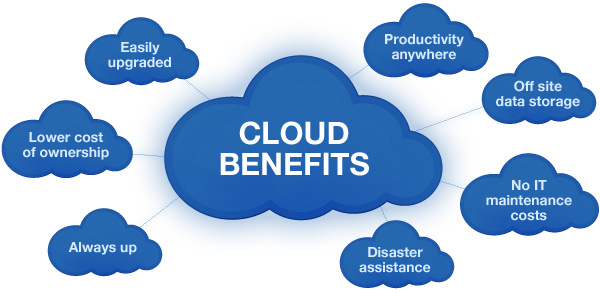Cloud computing presents its users with a wide ray of benefits and each of the previously explained types of cloud computing comes with its specific set of benefits which are unique from a given type of cloud computing. It is thus important for any user of cloud computing to look at the different types of clouding and select the best option for his or her business in order to enjoy the maximum benefits of cloud computing.
Who Can Benefit From Cloud Computing?
Business application software provides businesses with critical data anytime it is needed which explains its popularity in large businesses as it acts as a tool of running the business smoothly. However, this kind of IT infrastructure requires huge capital outlay in order to acquire one which might not go down well with small businesses. For such people, they can only look up to the stars hoping that the clouds can save them from this technological mess. If you are such a person operating a small business, you need to give the newly reinvented technology of cloud computing a chance to provide answers for your business application and software requirements. With its highly reduced monthly subscription cost, cloud computing is the best take for delivering web based applications to small and medium sized businesses. In simple terms, cloud computing benefits millions of business owners by providing them with improved state of the art business application. Cloud computing offers its users with a lucrative opportunity of accessing the largest data center for their application software needs.
Top Benefits Of Cloud Computing
Cloud computing offers different benefits ranging from increased savings in cost to highly improved marketing speed and even flexibility. However, this is only a piece of the cake as there are even other benefits of cloud computing that cannot be noticed easily. To start with, investing in cloud computing requires little to no capital outlay which honestly speaking, it’s the most basic and important benefit of computing via the cloud. The very free nature of the cloud reduces the high services of technological maintenance and integration. This provides small businesses with a golden opportunity of running an integrated package of computing products without draining all the business resources into web hosting.
In fact, there are some providers of cloud computing who provide free software as a service to small businesses with inadequate resources to invest in good IT infrastructure. For such businesses, they only have to pay the low monthly cloud computing subscription cost which is an additional benefit to them. In cloud computing, acquisition and deployment is done rapidly given that users do not have to install the systems manually as the cloud provides the software connection. With the software being accessed through the clouds easily, the number of deployment times is simply trimmed down to only a fraction of what they used to be. Cloud computing is infinitely scalable. This implies that this type of computing offers no physical limitations and you can always expand freely over the clouds depending on your needs. Businesses that have adopted cloud computing incur very low ongoing operating costs as no investment or maintenance costs are needed. With cloud computing you only need to relax and enjoy all the services without worrying about any associated additional costs.
